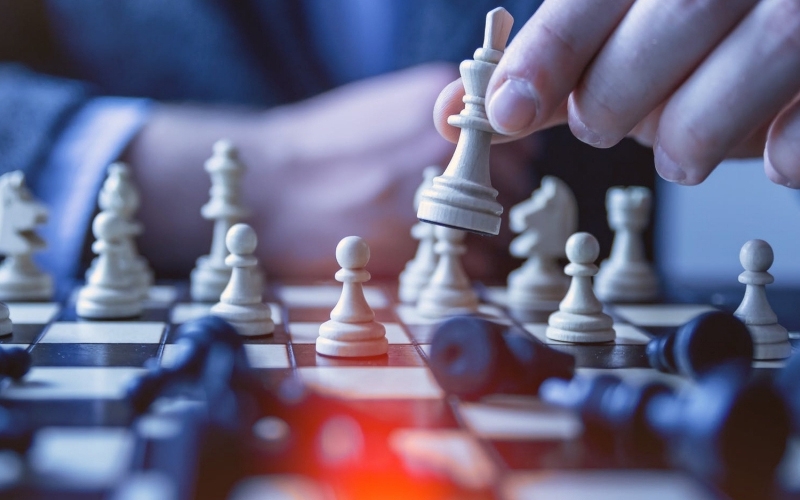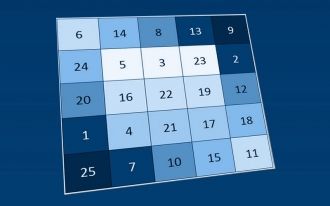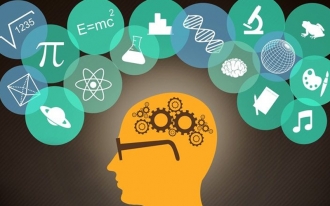- BRAINTRAIN |
- Blog |
- Brain Development |
- Board Games for Brain Development

Bogdan Moroz 27.01.2020 2719 Comments
In today’s world, the brain is one of the most critical and valuable resources, capable of transforming people’s quality of life and their significance among others. Compared to physical strength, intellectual potential is rarer, prompting many to pursue their genetic potential from childhood.
Neither children nor adults always enjoy tedious or demanding exercises and brain development trainers, yet the need to enhance thinking requires regular intellectual effort. The solution lies in developmental games—both board and computer-based. Their numbers are overwhelming, but how do we gauge their effectiveness? Most aim solely to profit developers or sellers. Rising demand has spurred a vast market, but “not all that glitters is gold.”
Undeniably Effective Games
Many of us prefer exploring new things, which has its charm, but in some areas, time-tested classics shouldn’t be overlooked. Certain mind games have endured generations, even eras, for a reason. Their longevity speaks to their efficacy, unlike new games, which lack long-term research to confirm their benefits.
More Than Just Classics
It’s likely unnecessary to list classic board games known for enhancing memory and thinking speed—most people can name at least half. This is logical: they work.
These games are associated with family warmth and heartfelt conversations, fostering closeness, strengthening bonds, and creating a friendly atmosphere.
Board games have proven effective in combating stress and anxiety by fully engaging players in the game, distracting them from worries long enough to stabilize the nervous system and gain a fresh perspective.
Reading biographies of famous figures, you’ll often find such games among their favorite pastimes. Coincidence or pattern? That’s for you to decide.
Chess
It’s widely known that this game trains attention and thinking speed. Mathematical calculations by Claude Shannon, a renowned U.S. mathematician, revealed 10^120 unique game variations, highlighting its vast potential for complexity and diversity. This explains why chess tops many lists of brain-enhancing exercises. All that’s left is finding a worthy opponent.
Checkers
A dynamic logic game, though less varied than chess, it remains a solid brain-training exercise. Constant attention, anticipating opponents’ moves, and strategic planning are among the features that secure its place among proven classic developmental games.
Dominoes
Another ancient logic game with multiple rule variations, all positively impacting cognitive functions. They demand sharp attention, quick move calculations, opponent observation, and strong counting skills.
Backgammon
An ancient board strategy game requiring not only a cunning plan but also constant consideration of opponents’ actions. Less common in our culture than chess, checkers, or dominoes, its positive impact on intellectual development is proven through repeated tests and group observations. Conceptually similar to the above, it demands attention and mental operations.
Go (Baduk)
An Asian board game, little-known in Europe until the 20th century, it has since spread rapidly. Played on a grid board with biconvex black and white stones, its popularity stems from its reliance on strategy and attention, unaffected by chance. Official rules are easily found on Wikipedia, and it ranks among the top five intellectual games with global competitions. Experts say a five-year-old can learn it, with endless room for mastery.
Classic Literature
Yes, you read correctly—classic literature continues the list of effective exercises for robust mental development. While not a board game, its significant contribution to personal and intellectual growth cannot be overlooked.
Why Books?
In our high-tech world, with its push for efficient time use and knowledge accumulation, many opt for condensed films, book summaries, or key takeaways—a response to the all-consuming hustle of modern life. However, targeted studies by psychologists and physiologists revealed striking results: regular reading increased white matter in the brain, which supports new neural connections, directly enhancing learning and knowledge retention.
Experimentally, the brain perceives no difference between read and lived experiences. Emotions, experiences, and lessons from books are as real to the brain as real-life events. Thus, readers better connect with others, understand interlocutors, and show genuine empathy.
Still unsure about reading? Review the reading lists of successful people, note their diverse themes, and see how many are classic literature. Draw your own conclusions.
How Literature Impacts the Brain
As mentioned, books offer experiences perceived as personal. Authors share emotions and insights, allowing readers to co-experience and draw lessons.
Books also present diverse perspectives on the same issues, teaching readers to think broadly and avoid fixation on biases. Such individuals are open to new knowledge and absorb it faster. Many psychologists assert that reading and intellectual development go hand in hand.
Harm or Benefit of Modern Virtual Games
Countless gaming fans passionately claim games make them smarter, more strategic, and faster-reacting, with developers and distributors eagerly agreeing. But is this true?
Scientists note that some games do train specific brain areas, like concentration or thinking speed, but the harm often outweighs the benefits.
Most popular modern computer games lack positive effects, serving primarily as entertainment.
Healthy Lifestyle as the Foundation of Brain Development
No games or memory and attention training will help if physical health is neglected. Well-being, adequate nutrients, and quality rest are essential for mental development.
We won’t delve deeply into health here but list key aspects:
- Healthy diet
- Adequate sleep duration
- Regular physical activity
- Specific exercises for brain rejuvenation
Let’s focus briefly on the last point. Recent research shows that preventing brain aging requires forming new connections. The brain either develops or ages—there’s no middle ground. Here are recommendations from leading psychology and brain physiology experts:
- Regular memory practice: Memorize lists, poems, or reference information, even if recorded elsewhere.
- Acquire new skills: Learn a musical instrument (even basic), a new language, or cooking, which builds diverse connections through tastes and aromas.
- Ditch the calculator: Where possible, calculate mentally.
- Draw mental maps: Recall details of recently visited places in your mind to train navigation zones.
- Exercise: Start with daily warm-ups for quick results.
- Fine motor skills: If your work doesn’t involve them, find a hobby that does.
Not only classic board games but other beneficial activities can become habits, yielding immense intellectual growth and countering mental aging.




